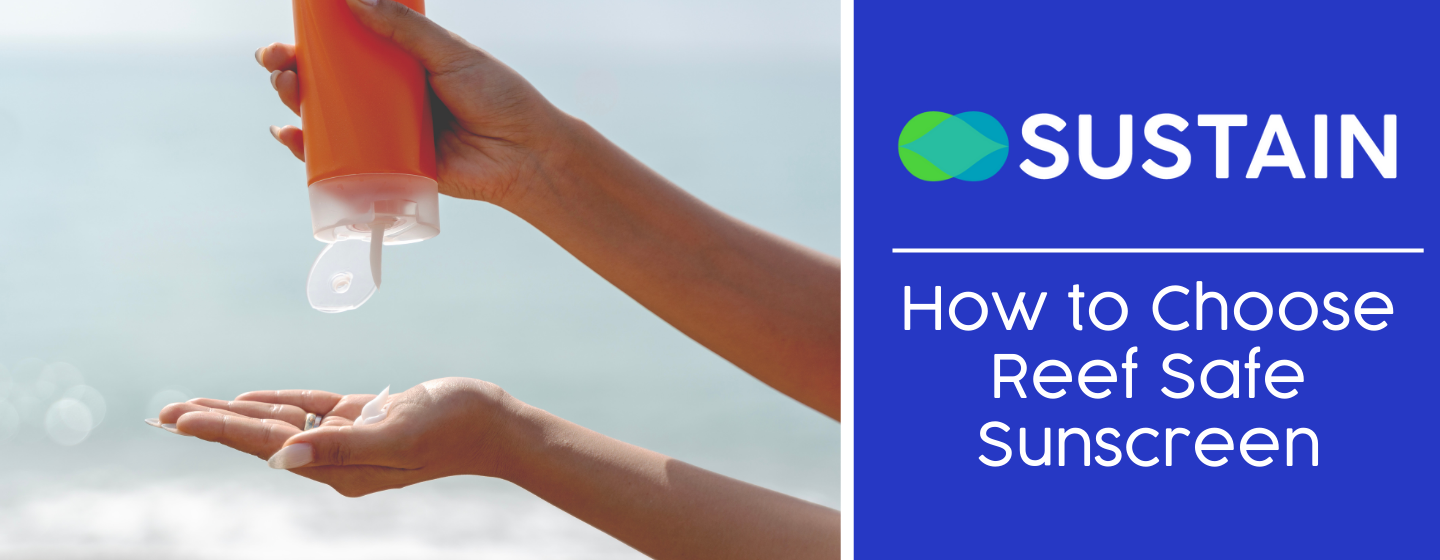Eco-Friendly Sunscreen



Coral reefs are among the most vibrant and vital ecosystems on the planet. However, they're under significant threat from various sources, and one you may not expect is your sunscreen.
Up to 6,000 tons of sunscreen enters marine habitats each year, particularly in popular tourist destinations. Unfortunately, many common sunscreens contain chemicals that are harmful to coral reefs, adding to the challenges these ecosystems already face.
Coral reefs are not only beautiful but also essential to marine biodiversity. They provide habitat and food for an estimated 25% of all marine species, protect coastal areas by acting as natural barriers against storm surges and erosion, and support local economies through tourism and fishing.
The decline of coral reefs has far-reaching consequences for marine ecosystems and human communities that rely on them. The loss of corals would mean a significant decrease in marine biodiversity and a decline in economies dependent on the natural resources reefs provide.
Two of the primary culprits in sunscreen pollution are the chemicals oxybenzone and octinoxate. These ingredients are often found in sunscreens because they effectively block UV rays, but they are harmful to coral reefs. Studies have shown that even small amounts of these chemicals can lead to coral bleaching, which weakens corals and makes them more vulnerable to disease. When coral reefs bleach, not only do they lose their vibrant color, they also lose their ability to sustain marine life.
Coral reefs are already stressed by other factors like climate change, overfishing, and pollution, so the added strain from sunscreen chemicals increases the likelihood of coral death. This is especially problematic in high-tourism areas where sunscreen pollution is more concentrated.
To combat this issue, popular tourist destinations like Hawaii and Key West have bannedsunscreens that contain oxybenzone and octinoxate, mandating the use of what's commonly referred to as reef-safe sunscreen. But what exactly does "reef-safe" mean?
Reef-safe sunscreens typically exclude harmful chemicals like oxybenzone and octinoxate, relying instead on non-nano mineral-based ingredients such as zinc oxide and titanium dioxide. These ingredients create a physical barrier on your skin that reflects UV rays rather than absorbing them. Unlike chemical sunscreens, these mineral-based ingredients don't seep into marine environments and harm coral reefs.
It's important to note that "non-nano" refers to the size of the particles in these sunscreens. Nano-sized particles can be small enough to be absorbed by marine life, potentially causing harm. Non-nano particles are larger, making them less likely to be ingested by marine animals.
Selecting a reef-safe sunscreen doesn't mean sacrificing protection for your skin. Mineral-based sunscreens with zinc oxide or titanium dioxide are just as effective at blocking UVA and UVB rays. When choosing a sunscreen that's safe for both your skin and the ocean, here are a few things to keep in mind:
1. Check the active ingredients: Look for non-nano zinc oxide or titanium dioxide as the primary active ingredients. Avoid sunscreens that list oxybenzone, octinoxate, or other chemical UV blockers.
2. Avoid sprays: While convenient, spray sunscreens can spread the product more widely, making it more likely to wash off into the ocean. Opt for lotions or creams instead.
3. Consider sun-protective clothing: One of the easiest ways to reduce sunscreen use is by wearing clothing with built-in UV protection. Hats, rash guards, and long sleeves can provide excellent coverage without needing as much sunscreen.
4. Stay informed: Reef-safe labeling isn't regulated, so it's important to read the ingredient list. Some products may claim to be "reef-friendly" without meeting the standards.
Next time you head to the beach, remember that the sunscreen you choose can directly impact the health of our oceans. By opting for reef-safe sunscreens and using other sun protection methods like UV-protective clothing, you can enjoy your time in the sun while contributing to the preservation of coral reefs. Let's do our part to ensure that future generations can enjoy the beauty and benefits of thriving coral reefs.
Did you learn something new? Please take a moment to answer this short survey.